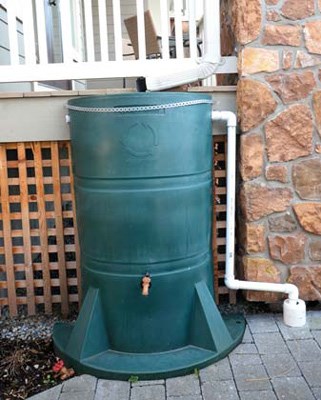January is done - and with it may go all those good intentions to make positive changes this year.
But there's no such thing as too late when it comes to achieving personal goals and resolutions - even those that may have been made on New Year's Eve and then were quickly forgotten in the rush of everyday life over the last few weeks.
Burnaby NOW reporter Christina Myers has been touching base with experts around the region to gather the best tips, tricks and advice to help readers reach their goals in 2012. In past installments in this series, the NOW heard from experts in finance, nutrition and exercise. In today's edition, we take a look at a resolution that has become increasingly popular in recent years: the pledge to "go green." A local expert with years of experience advising government and business on sustainability issues offers up some thoughts about being green in the homefront.
Keep an eye on upcoming editions of the NOW for more installments of the "This Year, I Will" series, including advice on learning something new, getting involved in the community and spending more time with family.
-
We talked to: Coro Strandberg, a sustainability consultant and strategist working with businesses, government and community organizations, and a former green economy policy advisor for the B.C. government. Strandberg also owns a home in Burnaby that was recently awarded LEED gold environmental certification.
Question: Many people feel that sustainability issues are too big to tackle. From your perspective, why is it valuable for everyone to think about "green" values in everyday life?
Answer: Canadians have one of the highest environmental footprints in the world.
If everyone lived as we do, we would need more than four planets to support us. With 7 billion people on the planet to become 9 billion by 2050 we all need to do our part to reduce our impacts.
Relatively simple changes can make a big difference, especially if more and more people get involved.
Question: As a parent, what kinds of environmental and sustainable lessons do you try to share with your children?
Answer:
- Sustainable behaviours
- Where garbage goes.
- Awareness about consumerism and the role that advertising plays to create needs to buy things.
- Knowledge of what companies and governments are - and are not - doing to support the environment
- Independent thinking
Question: In a home, what kind of small changes can help reduce a family's footprint?
Answer:
- Buy less, repair instead of throw out, buy second-hand, share big purchases with neighbours
- Take transit or car pool
- Buy ENERGY STAR appliances
- Switch off lights and change light bulbs to CFL or LED
- Unplug computers and other electronics when not in use
- Don't wash clothes in hot water
- Don't leave taps on
- Have shorter showers
- Buy organic and local food and buy less meat
- Compost and recycle Use toxin free cleaning products Many of these changes can save money, too.
Question: Of the various green components in your home, are there things that particularly catch the attention of visitors?
Answer:
- PV panels on the roof which produce about 15 per cent of our annual electricity needs
- Rain barrels for outdoor watering
- The attractiveness of the drought resistant landscaping
- Handy built-in recycling centre near the kitchen sink
- Electric vehicle charging station
- Induction stove cook top (a type of stove that limits heat loss and is incredibly efficient in its energy usage)
Question: Why is it important for the younger generation to grow up learning about these topics?
Answer: By learning about these topics they can adopt more sustainable habits and will perceive the planet as something to be nurtured rather than exploited. If they grow up believing there is no such thing as garbage, for example, it can unleash the innovation and new ideas we need to live more gently on earth. This way, they can help advance the transition to a healthier planet.
Question: For someone who knows very little about sustainability do you have any recommendations for books, websites, or resources that can help them learn more and get motivated?
Answer: Check out David Suzuki Foundation website, particularly "What you can do" (at www.davidsuzuki.org/ what-you-can-do). The Co-operators has produced a free online booklet on sustainability at home "decision-making tips for every day choices" (at www.coopera tors.ca/en/About-Us)
Question: Any favourite quotes related to environmentalism that you particularly like?
Answer: Unless someone like you cares a whole awful lot, nothing is going to get better. It's not. - Dr. Seuss, The Lorax
Question: Anything else you'd like to add about sustainability and going green?
Answer: You can also volunteer for environmental groups, donate to environmental organizations, invest your money in companies that have good environmental practices, choose products with green credentials, and elect politicians who have policies to improve the environment. Get involved. The City of Burnaby is developing an environmental sustainability strategy - find out how you can have your say in making Burnaby the greenest place to live.



